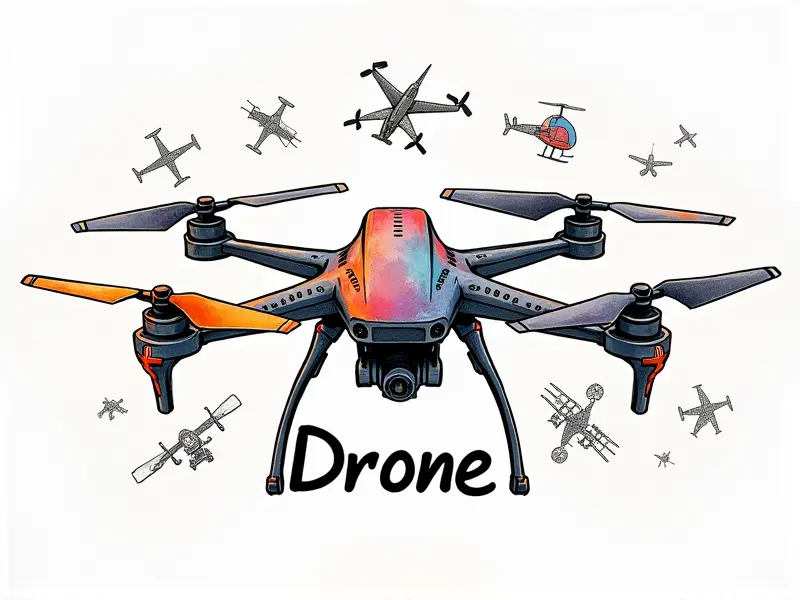RC airplanes vs drones

RC Airplanes vs Drones: The Ultimate Guide
Welcome to the ultimate guide comparing RC airplanes and drones. Whether you're a seasoned hobbyist or just starting out in the world of remote-controlled (RC) aviation, this article will provide you with all the information you need to make an informed decision about which type of aircraft is best for your needs.
Which is Better: RC Airplanes or Drones?
The choice between RC airplanes and drones depends on several factors such as skill level, intended use, budget, and personal preference. Both types offer unique advantages and challenges that cater to different interests within the hobbyist community.
RC Airplanes vs Drones: The Ultimate Guide
This comprehensive guide delves into the intricacies of RC airplanes and drones, covering everything from basic features to advanced capabilities. We'll explore their differences in terms of design, functionality, and performance.
Pros and Cons of RC Airplanes & Drones
- RC Airplanes:
- Pros:
- Realistic flight experience similar to full-sized aircraft
- Longer flight times due to larger battery capacity and fuel efficiency
- Greater maneuverability in open spaces
- More complex build and maintenance, offering a sense of accomplishment
- Cons:
- Higher initial cost for high-quality models
- Requires more space to fly safely
- Steep learning curve due to manual control and aerodynamics knowledge
- Drones:
- Pros:
- Easy to learn and operate, especially with beginner-friendly models
- Compact size allows for indoor flying or small outdoor spaces
- Wide range of applications including aerial photography, videography, and racing
- Cons:
- Limited flight time due to smaller battery capacity
- Susceptible to wind interference affecting stability and control
RC Plane Flying vs Drone Racing: Compared
Both RC plane flying and drone racing offer exhilarating experiences but differ significantly in terms of skill requirements, equipment needed, and the thrill they provide.
- RC Plane Flying:
- Involves manual control over aerodynamic maneuvers
- Requires understanding of wind conditions and weather patterns
- Emphasizes precision flying techniques for landing and takeoff
- Drone Racing:
- Involves fast-paced, high-speed navigation through obstacles
- Uses first-person view (FPV) technology for immersive racing experience
- Focuses on agility and quick reflexes to navigate tight spaces
Transitioning from RC Planes to Drones
Moving from RC planes to drones can be a natural progression for hobbyists looking to expand their skill set or explore new challenges. Here are some tips on making the transition smoother:
- Start with beginner-friendly drone models that offer easy control and stability
- Leverage existing knowledge of aerodynamics to enhance your flying skills
- Invest in FPV goggles for an immersive racing experience
RC Airplanes vs FPV Drones: Performance Battle
When comparing RC airplanes and FPV drones, it's important to consider their performance capabilities:
- Speed:
- FPV drones typically offer higher top speeds due to their lightweight design and powerful motors.
- Aerobatics:
- RC airplanes excel in performing complex aerobatic maneuvers, showcasing impressive agility and control.
Should You Buy an RC Airplane or Drone?
The decision to buy an RC airplane or drone ultimately depends on your personal interests and goals:
- If you enjoy the challenge of mastering aerodynamics and building intricate models, RC airplanes might be more suitable.
- For those seeking instant gratification and a wide range of applications, drones offer convenience and versatility.
Advantages of Flying RC Airplanes vs Drones
Flying RC airplanes offers several unique advantages:
- Realistic Flight Experience:
- RC planes provide a more authentic flying experience, closely resembling full-sized aircraft.
- Longer Flight Times:
- With larger batteries and fuel efficiency, RC airplanes can stay airborne longer than drones.
Drones vs RC Planes: Key Differences Explained
The key differences between drones and RC planes lie in their design, functionality, and intended use:
- Design:
- RC airplanes are designed to mimic full-sized aircraft with wings, fuselage, and tail sections.
- Drones feature multi-rotor designs with multiple propellers for vertical takeoff and landing capabilities.
RC Airplanes vs Drones: What's Right For You?
To determine which option suits you best, consider your goals, available resources, and personal preferences:
- Goals:
- If your goal is to learn about aerodynamics and build intricate models, RC airplanes are ideal.
- For those interested in aerial photography or racing, drones offer a more accessible entry point.
The Future of RC Aviation: Planes or Drones?
The future of remote-controlled aviation is likely to see continued innovation and growth in both planes and drones:
- Technological Advancements:
- Incorporation of advanced technologies such as AI, machine learning, and autonomous flight systems.
- Social Impact:
- Growing popularity in recreational activities like drone racing and aerial photography competitions.
Conclusion
The choice between RC airplanes and drones ultimately depends on your personal interests, goals, and available resources. Whether you're drawn to the challenge of mastering aerodynamics or seeking instant gratification through versatile applications, both options offer unique advantages and opportunities for growth in the world of remote-controlled aviation.

